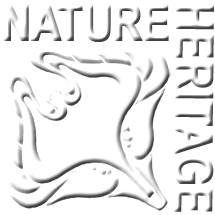Training and capacity building
A critical part of our commitment to conservation is ensuring that conservation managers are supported to apply the most up-to-date information and skills for conservation and sustainable development. Article 17 of the Convention on Biological Diversity stresses the importance of information exchange and training: "Such exchange of information shall include exchange of results of technical, scientific and socio-economic research, as well as information on training and surveying programmes, specialized knowledge, indigenous and traditional knowledge as such and in combination with the technologies referred to in Article 16, paragraph 1. It shall also, where feasible, include repatriation of information." Yet, limited research funding often leads to research-and-run approaches where local conservation managers are not fully informed of the results gathered in their areas. We fill the gap and ensure that local conservation managers are fully informed and trained.
Hunting and gathering: wild meat and wild plant use by Baka Pygmies in Cameroon
The UK Darwin Initiative project "Enabling Baka attain food security, improved health and sustain biodiversity" (2017-2020; project reference number 24-09) aimed at improving the agri-food systems, and as a result reduce the impact on wildlife, in southeastern Cameroon. A crucial component was to understand the hunting system of sedentarised Baka Pygmies and to encourage sustainable wildlife extraction. Here, we present a series of PowerPoint presentations highlighting the project´s research outcomes.
Wild meat hunting in the tropics and subtropics
The hunting of wild animals for their meat has been a crucial activity in the evolution of humans. It continues to be an essential source of food and a generator of income for millions of Indigenous and rural communities worldwide. Conservationists rightly fear that excessive hunting of many animal species will cause their demise, as has already happened throughout the Anthropocene. Many species of large mammals and birds have been decimated or annihilated due to overhunting by humans. If such pressures continue, many other species will meet the same fate. Equally, if the use of wildlife resources is to continue by those who depend on it, sustainable practices must be implemented. These communities need to remain or become custodians of the wildlife resources within their lands, for their own well-being as well as for biodiversity in general. Here we present a training course that is based on the chapters of the book with the same name, published by Cambridge University Press in Sept 2022
Coming soon ....

